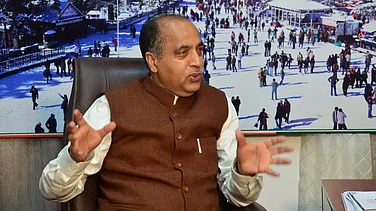The spike protein of the SARS-CoV-2 virus, allowing the virus's entry into human cells, could be responsible for memory loss as a part of post-Covid symptoms, according to a study in mice.
Researchers from Federal University of Rio de Janeiro (UFRJ) and UniRio, Brazil, also identified a receptor, TLR4, as a potential therapeutic target for the symptoms. They describe the mechanism behind this cognitive and memory impairment as a part of post-Covid symptoms in their study published in the journal Cell Reports.
In the study, the researchers observed an increase and activation state of microglia, when they infused the spike protein into the brains of mice. Microglia is a type of brain cell involved in the innate immune response and plays an essential role in neuroinflammatory diseases.
The study leaders, Claudia Figueiredo and Giselle Passos from UFRJ, explained that the activation of the TRL4 receptor by the viral spike protein induces neuroinflammation, leading to the elimination of synaptic proteins by microglia through a phagocytosis process.
Phagocytosis is a process in which phagocytes, or scavenger cells, engulf and digest microorganisms and cellular debris. This series of events triggered by the infusion of spike protein in the brain induced delayed memory impairment, which was observed by scientists in both mice and humans.
They also found that patients with polymorphisms in the gene related to TLR4 were found to have a higher risk of developing late memory impairments after SARS-CoV-2 infection. The researchers, thus, concluded that the viral spike protein had a central role in the development of cognitive changes after Covid-19.
They further suggested TLR4 receptor as a promising target for the development of preventive and therapeutic strategies to avoid or treat memory loss caused by SARS-CoV-2.


























